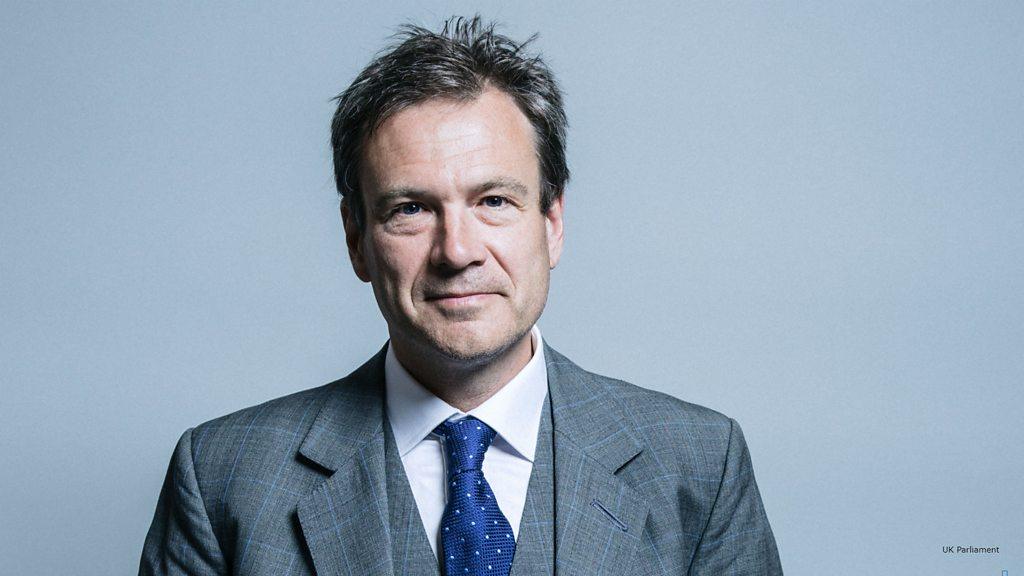Matthew Hedges: Academic jailed in UAE for spying 'failed' by UK government
- Published
Daniela Tejada said her husband Matthew Hedges was "scared" in court
The wife of a British academic jailed for spying in the United Arab Emirates says the British government put UK interests above his right to freedom.
Daniela Tejada spoke to the BBC shortly after returning to the UK from Abu Dhabi where she saw Durham University's Matthew Hedges sentenced to life.
The 31-year-old denies spying but prosecutors said he had confessed.
Ms Tejada has arrived for a meeting in London with the Foreign Secretary Jeremy Hunt.
Mr Hunt met the UAE ambassador in London earlier for "a very frank conversation" and Prime Minister Theresa May said she was "deeply concerned" by the situation, which was "being raised at the highest level" in the UAE.
Hedges, who is originally from Exeter, said he had been in the country conducting research on the UAE's security strategy for his PhD thesis when he was arrested at Dubai airport on 5 May.
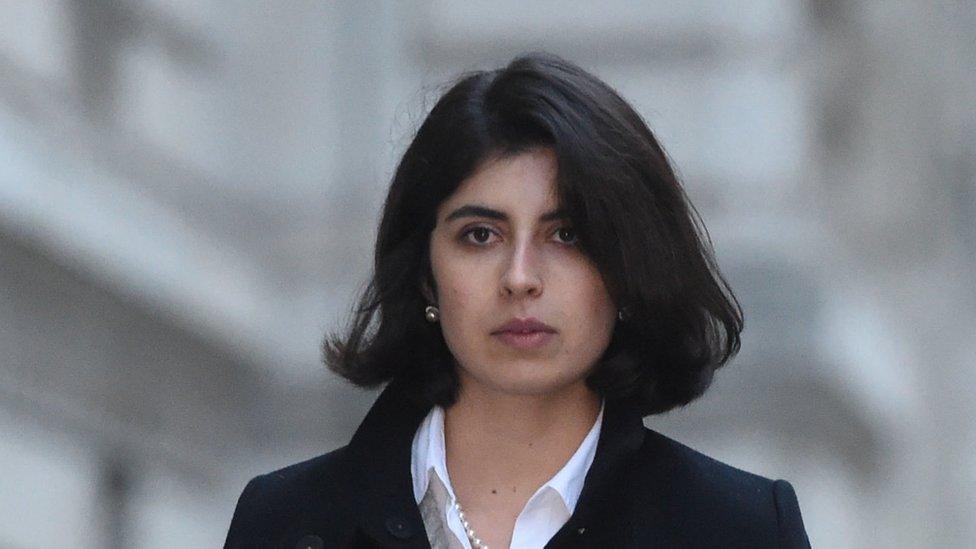
Daniela Tejada met Foreign Secretary Jeremy Hunt to discuss her husband's case
According to the BBC's security correspondent Frank Gardner, sources in the UAE claim "espionage material" was found on Hedges' laptop.
However, Mr Hunt has insisted there was no basis for the spy charges.
Ms Tejada told BBC Radio 4's Today programme earlier the UK Foreign and Commonwealth Office had been "stepping on eggshells instead of taking a firm stance" and only began to take her husband's case seriously once he had been released on bail on 29 October after enduring months of solitary confinement.
"I was under the impression they were putting their interests with the UAE above a British citizen's rightful freedom and welfare," Ms Tejada said.
'Unacceptable conditions'
She said she had contacted the Foreign Office "on a weekly basis" since her husband's arrest in May.
"They just disregarded my requests, they said it wasn't part of their job, it wasn't part of their duty," she continued.
"On one occasion, one of the case workers said the Foreign Office did not have a duty of care so weren't obliged to make such representations."
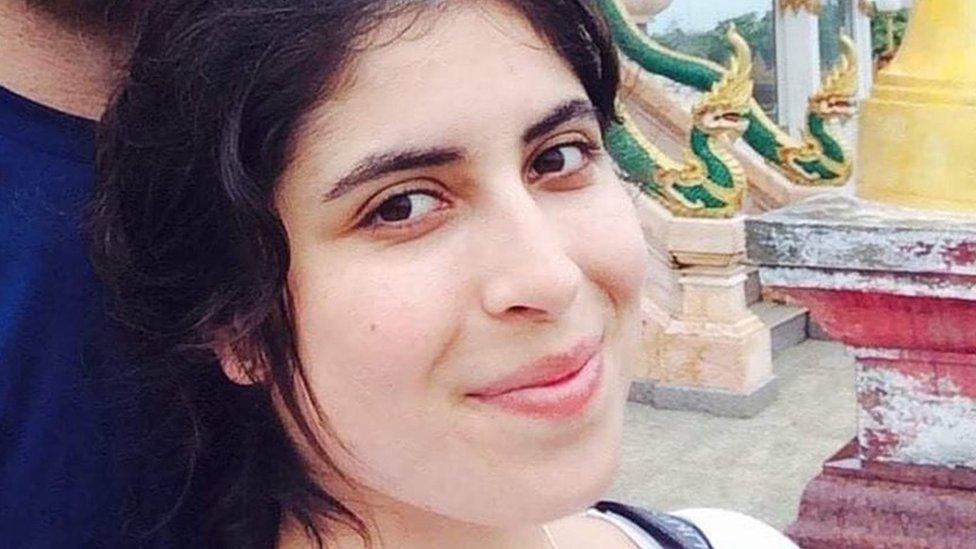
Ms Tejada said she felt the Foreign Office had disregarded her early requests for help
She said: "I believe they should have taken a firmer stance from the beginning, if not publicly then through their private representations.
"This is something they failed to do throughout.
"He was being detained in unacceptable conditions for something that he didn't do."
Health Secretary Matt Hancock said his "heart goes out" to Hedges and his family but that Mr Hunt had "raised this case personally with the crown prince on 12 November".
He told Today: "The Foreign Office has been acting on (Hedges') behalf at the highest possible levels."
Following a question in the House Lords, Baroness Goldie (Conservative) said consulate staff had met Hedges on six occasions, "three before his recent bail and three whilst on bail".
She said Mr Hunt was also "urgently seeking a call" with the UAE's Foreign Minister Abdullah bin Zayed.
Ms Tejada said she had been unable to speak to her husband since he was sentenced but she could "imagine he is just as distraught as I am".
"He was very, very scared standing in front of the judge," she said, because he was aware of the possibility of receiving an arbitrary judgement.
"I asked him to look at me if he was feeling too nervous and he tried to do so on a couple of occasions but was asked to face the judge."
She said Hedges was shaking when the translator told him the sentence and "asked to double check if he had heard it right".
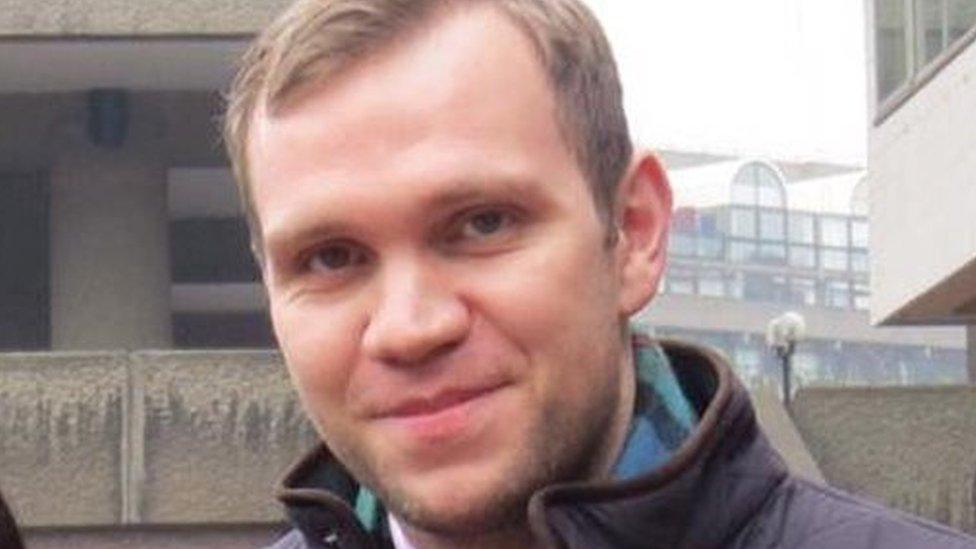
Matthew Hedges was arrested in the UAE in May
Ms Tejada said there had been no due process, adding: "He was put through so much strain for six months that absolutely nothing he said or did could be used against him.
"Anything used against Matt is completely unfounded."
Mr Hedges' family claim he signed a document written in Arabic - a language he cannot speak or read - that later transpired to be a confession.
'Fair and transparent trial'
This came after he was interrogated without a lawyer or consular help, his family added.
Ms Tejada later told Reuters: "Handing a life sentence to an innocent researcher who held the UAE in high regard speaks volumes about their lack of tolerance and respect for human life."
UAE Attorney General Dr Hamad Saif Al Shamsi said Hedges had "confessed in detail to his crimes" and was "accorded full rights" with a "fair and transparent trial".
Abdulla Al Naqbi, head of the Department of Legal Affairs for the UAE Ministry of Foreign Affairs, added: "Compelling and powerful evidence was presented in court. That included information extracted from his personal electronic devices by expert forensic analysis techniques, evidence provided by UAE intelligence agencies, witness testaments and Mr Hedges' own confession.
"The case was heard by three judges in the security division of the Higher Federal Court who met a total of four times. In the first session on 3 October Mr Hedges was asked whether he had proper representation and was offered the services of a court-appointed lawyer, which he accepted.
"It is not true that he was asked to sign documents he did not understand."
The ministry said the UAE was "determined to protect its important strategic relationship with a key ally" and added that it hoped both sides could find "an amicable solution" to the case."
The UAE attorney general previously said the sentence - which could see the academic serve up to 25 years in jail before being deported - was not final as he had the right to appeal.

Analysis: Sending a spy 'makes no sense'
Frank Gardner, security correspondent, BBC News
Britain has a very deep and quite long-standing defence relationship with the UAE - it is an ally.
There are roughly 200 serving British personnel permanently based in the UAE. There is an airbase called Al Minhad just south of Dubai where RAF Typhoons and Tornadoes are rotating in and out, including for flights to Afghanistan. There is a port called Port Zayed which is the most visited Royal Navy port in the world. And hundreds of Emirati officers are trained at Sandhurst military academy.
Britain has got a very close defence, security and counter-terrorism relationship with the UAE and though there is no suggestion of that being threatened, if the situation escalates, the calls to reconsider that relationship will increase.
The suggestion Britain would send a spy makes no sense. I'm sure MI6 would use academics to spy on a place if they could, but only in hard-to-target countries. I cannot imagine what an academic could get out of the UAE that the UK couldn't get by asking the UAE directly.
There is nothing I can see that Matthew Hedges has done which in any way would constitute spying. There are far greater sensitivities there than in this country - somebody has reported him to the authorities saying he is asking suspicious questions.
I've known someone, who was a businessman in Dubai - a former British army officer - who was arrested because he upset the wrong person and didn't have the connections that would get him out of jail.

Prof Clive Jones, Hedges' supervisor at Durham University, said there would now have to be "some kind of moratorium" on sending students to do field work in the UAE and the wider Gulf region.
He said Hedges had been looking at civil-military relations in the UAE since the Arab Spring and "there was nothing clandestine or covert" about the material he had.
Prof Jones said there had been no "inkling" of any danger and Hedges was "no stranger" to the UAE, having "lived there on and off" since he was nine years old.
Shana Marshall, a friend of Matthew Hedges, says she is "shocked" at the UAE's verdict
Prof Jones said: "He knew many of the people he was going out to interview, so again it is utterly bizarre, and indeed perverse, and indeed a miscarriage of justice, that this has befallen him."
Conservative MP and former soldier Johnny Mercer said it would be "absolutely disgraceful, external" if Ms Tejada's claims were found to be true, adding: "We have no interests with the UAE that outweigh the rights and freedoms of our citizens abroad."
He earlier said the case was "unacceptable" and "consequences must be immediate until he is released".
- Published21 November 2018
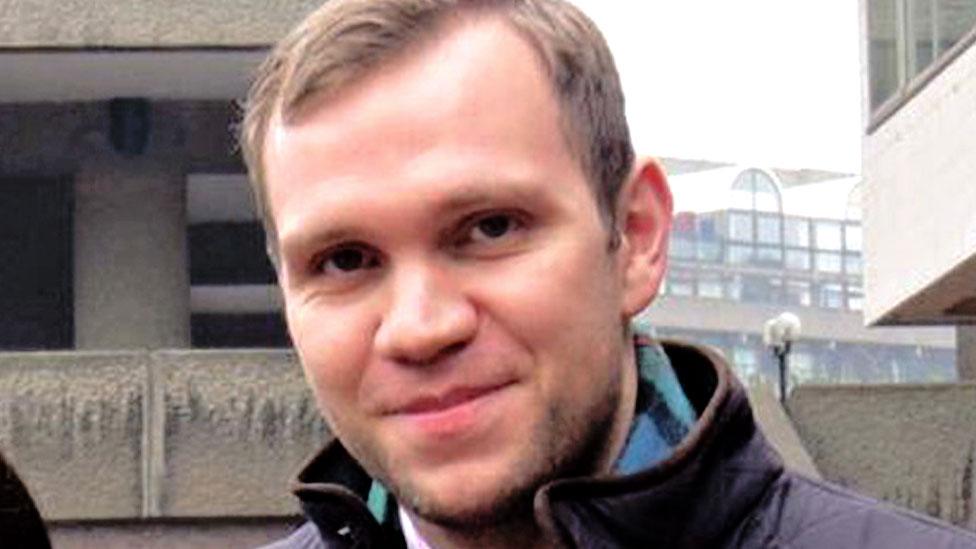
- Published21 November 2018
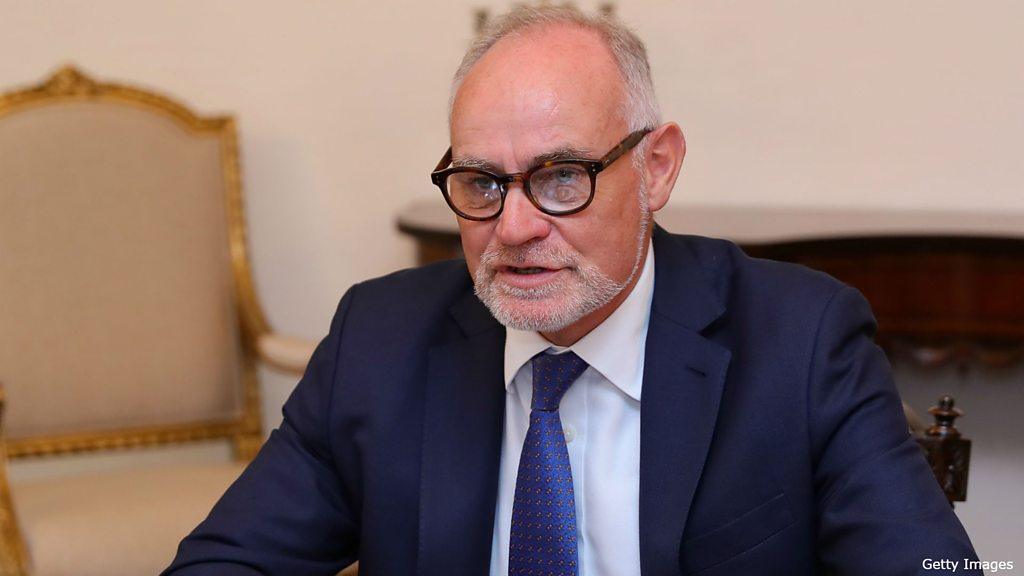
- Published21 November 2018
